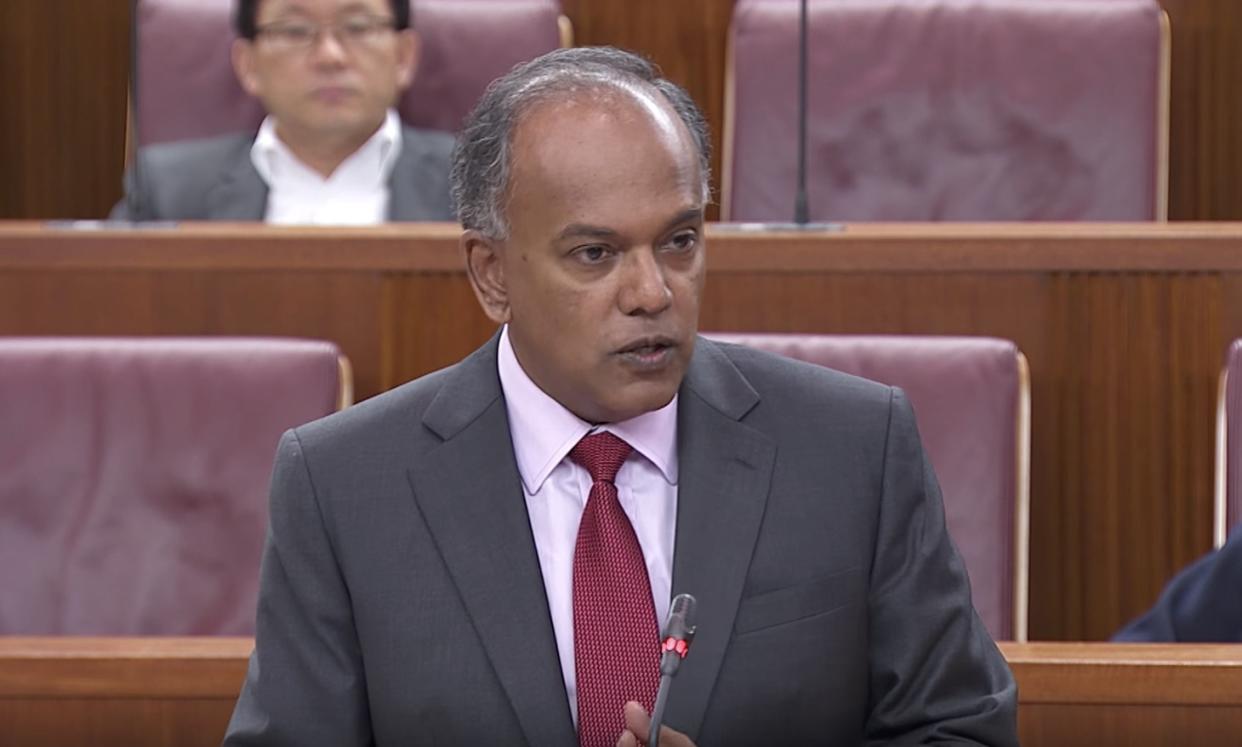COMMENT - Fake news bill: Time for lawyers, MPs to stand up and be counted

The Lee Kuan Yew fingerprint was all over the parliamentary statement Home Affairs and Law Minister K Shanmugam delivered last Monday (1 April) on the need for a different approach to tackle the scourge of hate and offensive speech.
The language, swagger, supreme confidence and brook-no-nonsense attitude all showed a minister in full control of his narrative as he set out the reasons for doing so.
Shanmugam made a compelling case, even quoting a psychologist from Princeton in the US who said that “distrust of an out-group is linked to anger impulses towards violence against that group”.
The 90-minute speech was a lead up to the first reading of the Protection from Online Falsehoods and Manipulation Act (POFMA), which will grant the government wide-ranging powers to act against what it deems to be fake news.
No responsible and sensible person would argue against the kind of damage deliberate online falsehoods can inflict on society. But there are enough points in the Bill that many a responsible and sensible can pick a bone with. Among them:
Definition of public interest
This covers six areas, including national security, public health, public finance, public safety and tranquillity in the friendly relations between Singapore and other countries and the weakening of public confidence in the government.
It is the sixth condition that has upset and unsettled many. The proposed law allows any minister, without any oversight and check, to act against those whom they believe are guilty of contravening the law. This is unprecedented in modern Singapore’s legal history. Let us not forget that we are talking about human beings, not some supreme saints, and they are more than capable of erring. Even saints, as shown in the sexual abuse cases in the Vatican, are not really saints.
Singapore has had a good track record in getting good people to run this country. At the same time, there have been examples, albeit rare, of ministers who have overstepped their boundaries. Giving such wide powers to one person and on such an important piece of legislation cannot be allowed without intense scrutiny and debate.
Exclusion clause
Another troubling aspect of the proposed legislation is the proposal to exempt anyone – yes, anyone – from the ambit of the Bill. It reads: “The Minister may, by order in the Gazette, exempt any person or class of persons from the provision of this Act,’’ This is mystifying at best and highly suspicious at worst. Who could this person/persons be? Why should they be protected? What makes them so special?
Courts as the final arbiter
The government has made a big deal of this by saying it doesn’t have the final say and that an aggrieved person can appeal to the court. But there are a few hurdles to cross. An appeal can be made only after an individual or organisation has gone to the Minister of Law to cancel the order and the Minister has refused to do so.
Then there is the headache of legal costs. How many will have the money and the stamina to pursue the case in court?
Here is where the legal fraternity can step up. Lawyers like Peter Low and Eugene Thuraisingam should weigh in and offer their services free of charge if they think people have a fighting chance to win their case.
There are many issues with the Bill; I have highlighted only three.
With the online discussion gaining traction, it might be timely for the ruling party to lift the Whip and allow a free-flowing discussion when the Bill comes for its next reading in Parliament in May. And if that doesn’t happen, then Members of Parliament, both from the ruling and opposition parties, must stand up to be counted. They must ask for answers and push for changes to the Bill.
Is that too much to ask for?
Related stories
Fake news bill: Media professionals favour fact-checking body, divided on its role
COMMENT: Who is the fake news law meant to protect, exactly?



